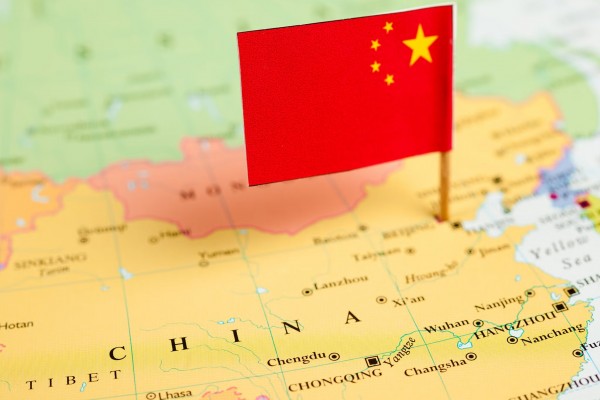Review № 18 of Chinese Antitrust News from the Experts of the BRICS Competition Centre
- Antitrust Enforcement Statistics 2023
- China's main media called for the development of large language models
- How censorship works in Chinese chatbots
- Heilongjiang Province Digital Platform Antitrust Compliance Guide
- Guidelines for Digital Platform Engagement in the Fight against Food Waste
- CEO of OpenAI urged to cooperate with China in the field of AI
- Campaign to streamline agreements and rules on internet platforms
- Antitrust Seminar for the Pharmaceutical Sector
- US to allow Korean and Taiwanese chip makers to continue operations in China
Antitrust Enforcement Statistics 2023
At a briefing by the State Council of China, Ren Duanping, head of SAMR's registration and registration department, said that the department is actively engaged in antitrust enforcement. At the end of May, 12 cases were considered on anti-competitive agreements and abuse of dominance and $97 million in fines and penalties were collected, and on unfair competition - 3316 cases and $21.6 million.
Source: Gov.cn
China's main media called for the development of large language models
China's main media outlet, the People's Daily, published an op-ed about accelerating the development of next-generation AI. As noted in the material, following technological progress, more and more efficient and "smart" large models will penetrate into a variety of areas, turn into a basic tool for production activities and life in general. Their power and innovative potential will become an important area of global competition. According to incomplete statistics, 79 large models with more than 1 billion parameters have already been presented in China. As a catch-up player, China should work hard to achieve the leading role of its companies, accumulate innovative resources, create and study new big models.
Source: People's Daily
How censorship works in Chinese chatbots
360 Security Technology, a company that develops computer security systems, presented its own chatbot and, using its example, explained how the filtering and moderation system works in such programs. According to company founder Zhou Hongyi, if a user enters a “sensitive” word, the chatbot will instantly end the conversation. The company maintains a list of words and phrases banned by the Chinese Communist Party. The list is constantly updated and checked manually, and is also subject to verification by the public security authorities.
Source: SCMP
Heilongjiang Province Digital Platform Antitrust Compliance Guide
The Market Authority of Heilongjiang Province has published its own antitrust guidance for the platform economy. At the national level, such a document does not yet exist, and local authorities are doing their part to ensure the implementation of the updated Antimonopoly Law in the digital economy. The Heilongjiang Manual only contains recommendations and is not binding. It explains anti-competitive practices and lists the factors to be taken into account when establishing a dominant position. The most typical violations for platforms are also given: for example, discrimination using big data and algorithms, refusal to make transactions in conditions of control of critical infrastructure, such restrictive measures as blocking, downgrading, and so on.
Guidelines for Digital Platform Engagement in the Fight against Food Waste
The corresponding document was released by SAMR together with the Ministry of Commerce. It states that food delivery platforms should play a leading role in the implementation of the Food Waste Prevention Act by raising food awareness among restaurants and consumers, encouraging moderation and savings. For example, food vendors on the platforms are encouraged to create a special section with small portions or use eco-friendly packaging, and on the platforms themselves to add reminder notifications about civilized food consumption.
Source: SAMR
CEO of OpenAI urged to cooperate with China in the field of AI
At a conference hosted by the Beijing Academy of Artificial Intelligence, OpenAI CEO Sam Altman emphasized the importance of collaboration between US and Chinese researchers to mitigate the risks posed by AI systems. “China has some of the best AI talent in the world,” he said. “Therefore, I sincerely hope that Chinese researchers will make a significant contribution.” With the development of increasingly powerful AI systems, the stakes for global collaboration are higher than ever, Altman said.
Campaign to streamline agreements and rules on internet platforms
SAMR launched a campaign to test the agreements and rules installed on the platforms: it will last 5 months. Major platforms frequently used by consumers in the home are required to self-check the agreements they use and fill in gaps in order to protect the rights of users. It is also necessary to form expert commissions and involve industry experts who will help the platforms establish a list of violations and inconsistencies.
Source: SAMR
Antitrust Seminar for the Pharmaceutical Sector
SAMR hosted an administrative workshop for the pharmaceutical industry, which was attended by the China Pharmaceutical Industry Association, the China Society for Medicines Regulation, and selected API and drug manufacturers. The agency noted that it attaches great importance to the antimonopoly regulation of the production and circulation of medicines: recently, several large cases from the field of pharmaceuticals have been reviewed and published. The regulator urged companies to regularly conduct self-assessment, proactively identify and address antitrust risks, ensure antitrust compliance, and increase awareness of protecting fair competition. For its part, SAMR will continue to identify problems at an early stage: to notice the "sprouts" of violations, negative trends and hidden (potential) problems.
Source: SAMR
US to allow Korean and Taiwanese chip makers to continue operations in China
The Biden administration plans to allow leading semiconductor manufacturers in South Korea and Taiwan to maintain and expand their operations in China, US Deputy Secretary of Commerce for Industry and Security Alan Esteves said, no sanctions will follow. The states will extend current export control policy waivers, which were originally in place until October of this year. Such a move is tantamount to an acknowledgment by the US authorities that isolating China from high-tech products in a globalized industry has proved more difficult than expected.
Source: WSJ




